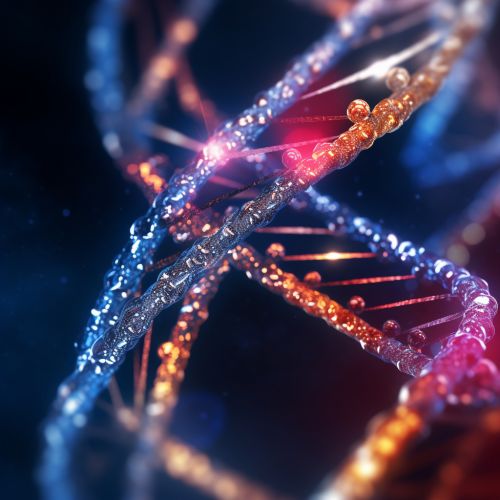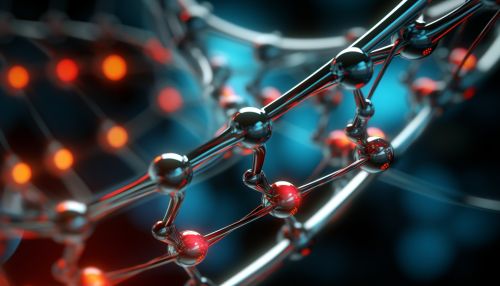DNA-PKcs
Overview
DNA-PKcs, or DNA-dependent protein kinase catalytic subunit, is a crucial component of the DNA repair machinery in eukaryotic cells. It is a serine/threonine protein kinase that is activated by DNA ends, specifically double-strand breaks (DSBs), and is involved in the non-homologous end joining (NHEJ) pathway of DNA repair.


Structure
The DNA-PKcs molecule is a large, multidomain protein with a molecular weight of approximately 470 kDa. It contains a large number of functional domains, including a kinase domain, a FAT domain, a FATC domain, and a PRD domain. Each of these domains plays a specific role in the function of the protein.
Function
DNA-PKcs is involved in the repair of DNA double-strand breaks (DSBs) through the non-homologous end joining (NHEJ) pathway. When a DSB occurs, DNA-PKcs is recruited to the site of the break and forms a complex with the Ku70/Ku80 heterodimer. This complex then recruits other proteins involved in the NHEJ pathway, such as XRCC4, Ligase IV, and XLF, to facilitate the repair of the break.
Role in Disease
Mutations in the DNA-PKcs gene can lead to a variety of diseases, including cancer and immunodeficiency disorders. For example, individuals with mutations in the DNA-PKcs gene are at an increased risk of developing lymphomas and leukemias due to the role of DNA-PKcs in maintaining genomic stability.
Therapeutic Potential
Given its role in DNA repair and disease, DNA-PKcs is a potential target for therapeutic intervention. Inhibitors of DNA-PKcs have been developed and are currently being tested in clinical trials for the treatment of cancer.
